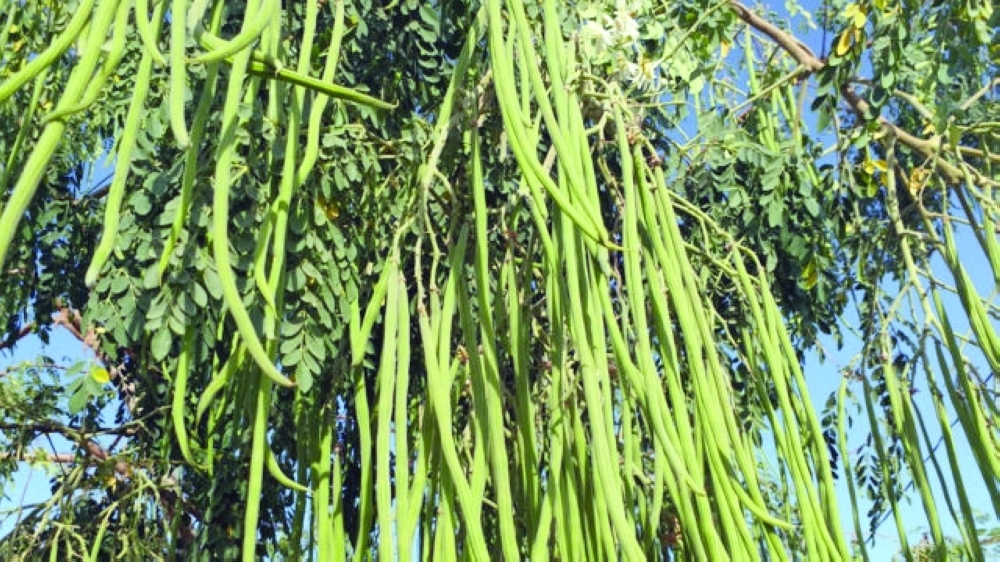

Unlocking value: Government leases 10-acre plot for commercial-scale cultivation of the medicinal tree in Ibri
An agreement signed here on Sunday will pave the way for the commercial-scale cultivation of a wild tree, the products from which have been widely hailed for their nutritive, curative and superfood-like benefits.
The moringa tree, variously dubbed as the ‘Drumstick Tree’ in some parts of the world and also ‘The Miracle Tree’ by some experts, grows in the wild in rugged parts of North Al Batinah Governorate, among other areas of the Sultanate of Oman. Generations of Omanis have depended on the extracts of the moringa seed and leaves to treat stomach disorders, and for various cosmetic and culinary purposes.
In recent years, major nutraceutical companies around the world, as well as small private players in the Sultanate of Oman, have sought to market the diverse medicinal properties of the moringa tree as part of a multimillion dollar global health-food industry – a commercial opportunity that the Omani government is seeking to support locally as well.
Under agreements signed on Sunday, the Ministry of Housing and Urban Planning leased a roughly 10-acre site in Wilayat of Ibri (Al Dhahirah Governorate) to a private firm for the cultivation of wild moringa trees. The initiative – one of 11 agreements signed with the support of the Ministry of Agriculture, Fisheries & Water Resources – will enable the production of 1,000 litres of moringa oil (shua oil in Arabic) annually.
According to experts, it marks the first time that the cultivation of an Omani medicinal plant is being commercialized as part of the government’s broader strategy to drive, on the one hand, its food security objectives, and on the other, to unlock economic value from its natural flora.
Researchers at Sultan Qaboos University say that extracts from the moringa tree are still used for a variety of medicinal purposes such as paralysis, skin rash and stomach ache among tradition-bound Omani folks. Oil extracted from the dried pods of the tree has been used for medical purposes and cosmetics as well.
Some international research bodies have cited the moringa leaf’s nutrient rich properties, including protein, vitamins and minerals – a finding that has prompted major nutraceutical firms to market moringa leaves as superfoods.
The plan for moringa tree cultivation is also evidence of food-related innovations picking up pace locally. Just a week ago, Oman Investment Authority – the integrated sovereign wealth fund of the Sultanate of Oman – announced a partnership with US food biotechnology firm MycoTechnology to launch a new project to produce mushroom-based protein using dates as the main ingredient. When eventually operational, the project has the potential to position Oman as a major producer of alternative proteins – a commodity that could address some of the world’s most pressing food-related challenges.
Oman Observer is now on the WhatsApp channel. Click here



